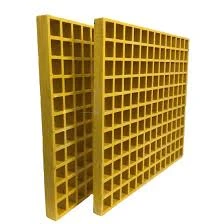
-
 Afrikaans
Afrikaans -
 Albanian
Albanian -
 Amharic
Amharic -
 Arabic
Arabic -
 Armenian
Armenian -
 Azerbaijani
Azerbaijani -
 Basque
Basque -
 Belarusian
Belarusian -
 Bengali
Bengali -
 Bosnian
Bosnian -
 Bulgarian
Bulgarian -
 Catalan
Catalan -
 Cebuano
Cebuano -
 China
China -
 China (Taiwan)
China (Taiwan) -
 Corsican
Corsican -
 Croatian
Croatian -
 Czech
Czech -
 Danish
Danish -
 Dutch
Dutch -
 English
English -
 Esperanto
Esperanto -
 Estonian
Estonian -
 Finnish
Finnish -
 French
French -
 Frisian
Frisian -
 Galician
Galician -
 Georgian
Georgian -
 German
German -
 Greek
Greek -
 Gujarati
Gujarati -
 Haitian Creole
Haitian Creole -
 hausa
hausa -
 hawaiian
hawaiian -
 Hebrew
Hebrew -
 Hindi
Hindi -
 Miao
Miao -
 Hungarian
Hungarian -
 Icelandic
Icelandic -
 igbo
igbo -
 Indonesian
Indonesian -
 irish
irish -
 Italian
Italian -
 Japanese
Japanese -
 Javanese
Javanese -
 Kannada
Kannada -
 kazakh
kazakh -
 Khmer
Khmer -
 Rwandese
Rwandese -
 Korean
Korean -
 Kurdish
Kurdish -
 Kyrgyz
Kyrgyz -
 Lao
Lao -
 Latin
Latin -
 Latvian
Latvian -
 Lithuanian
Lithuanian -
 Luxembourgish
Luxembourgish -
 Macedonian
Macedonian -
 Malgashi
Malgashi -
 Malay
Malay -
 Malayalam
Malayalam -
 Maltese
Maltese -
 Maori
Maori -
 Marathi
Marathi -
 Mongolian
Mongolian -
 Myanmar
Myanmar -
 Nepali
Nepali -
 Norwegian
Norwegian -
 Norwegian
Norwegian -
 Occitan
Occitan -
 Pashto
Pashto -
 Persian
Persian -
 Polish
Polish -
 Portuguese
Portuguese -
 Punjabi
Punjabi -
 Romanian
Romanian -
 Russian
Russian -
 Samoan
Samoan -
 Scottish Gaelic
Scottish Gaelic -
 Serbian
Serbian -
 Sesotho
Sesotho -
 Shona
Shona -
 Sindhi
Sindhi -
 Sinhala
Sinhala -
 Slovak
Slovak -
 Slovenian
Slovenian -
 Somali
Somali -
 Spanish
Spanish -
 Sundanese
Sundanese -
 Swahili
Swahili -
 Swedish
Swedish -
 Tagalog
Tagalog -
 Tajik
Tajik -
 Tamil
Tamil -
 Tatar
Tatar -
 Telugu
Telugu -
 Thai
Thai -
 Turkish
Turkish -
 Turkmen
Turkmen -
 Ukrainian
Ukrainian -
 Urdu
Urdu -
 Uighur
Uighur -
 Uzbek
Uzbek -
 Vietnamese
Vietnamese -
 Welsh
Welsh -
 Bantu
Bantu -
 Yiddish
Yiddish -
 Yoruba
Yoruba -
 Zulu
Zulu
Examining the Benefits and Characteristics of Food Grade Fiberglass Equipment
A Closer Look at Fiberglass Food Grade Equipment Features and Benefits
In the food processing industry, ensuring safety and compliance with health regulations is paramount. One of the materials that have gained significant attention for its suitability in this sector is fiberglass, especially when used in food-grade applications. This article will delve into the features and benefits of fiberglass food-grade equipment, highlighting why it’s becoming a favored choice among food manufacturers.
What is Food-Grade Fiberglass?
Food-grade fiberglass is a composite material made from glass fibers and resin, designed specifically for applications involving food. This material is engineered to meet stringent health and safety standards, making it an ideal choice for a wide range of food processing equipment. Its properties include durability, lightweight design, and resistance to various environmental factors, which contribute to its effectiveness in the food industry.
Key Features of Fiberglass Food-Grade Equipment
1. Durability and Strength One of the most significant advantages of fiberglass is its exceptional strength-to-weight ratio. Fiberglass equipment can withstand heavy workloads and rough handling without deforming or breaking. This durability translates to a longer lifespan for equipment, reducing the need for frequent replacements and maintenance.
2. Corrosion Resistance Food processing involves exposure to various chemicals, moisture, and temperature fluctuations. Fiberglass is inherently resistant to corrosion, making it suitable for environments where metal might rust or degrade. This resistance ensures that equipment maintains its integrity over time and complies with food safety regulations.
3. Non-Reactivity Food-grade fiberglass does not react with food products, meaning it won’t alter the taste, smell, or quality of the food. This non-reactivity is crucial in the food industry, as any change in food properties can lead to spoilage or health risks for consumers.
fiberglass food grade equipment a closer look at its features and

4. Easy to Clean Hygiene is critical in the food industry, and maintaining clean equipment is essential to prevent contamination. Fiberglass surfaces are non-porous, making them easy to clean and sanitize. They do not harbor bacteria or mold, which contributes to a safer working environment.
5. Customizability Another advantage of fiberglass is its versatility in design. Manufacturers can create custom shapes and sizes to fit specific applications, ensuring that the equipment meets the exact needs of food processing facilities. This flexibility allows for innovation in equipment design, which can enhance productivity and efficiency.
6. Thermal Insulation Fiberglass offers excellent thermal insulation properties, which can be beneficial in applications where temperature regulation is key. This feature helps in maintaining the quality of food products during processing by minimizing heat loss or gain.
Applications in the Food Industry
Fiberglass food-grade equipment can be applied in various sectors within the food industry, including
- Storage Tanks Used for storing liquids like sauces, oils, and chemicals safely. - Conveyors Facilitates the movement of food products through processing lines without the risk of contamination. - Food Preparation Surfaces Offers a safe, clean, and robust area for preparing food. - Cooling and Heating Elements Employed in processes that require precise temperature control.
Conclusion
The shift toward fiberglass food-grade equipment reflects the industry's need for materials that offer durability, safety, and compliance with health regulations. With its impressive array of features, fiberglass stands out as a practical solution for food manufacturers seeking to enhance their operations while ensuring food safety. As technology and manufacturing processes continue to evolve, the role of fiberglass in the food industry will likely expand, providing innovative solutions that cater to the ever-growing demands of food production and processing. Embracing fiberglass food-grade equipment not only elevates operational efficiency but also underscores a commitment to quality and safety in food handling.









